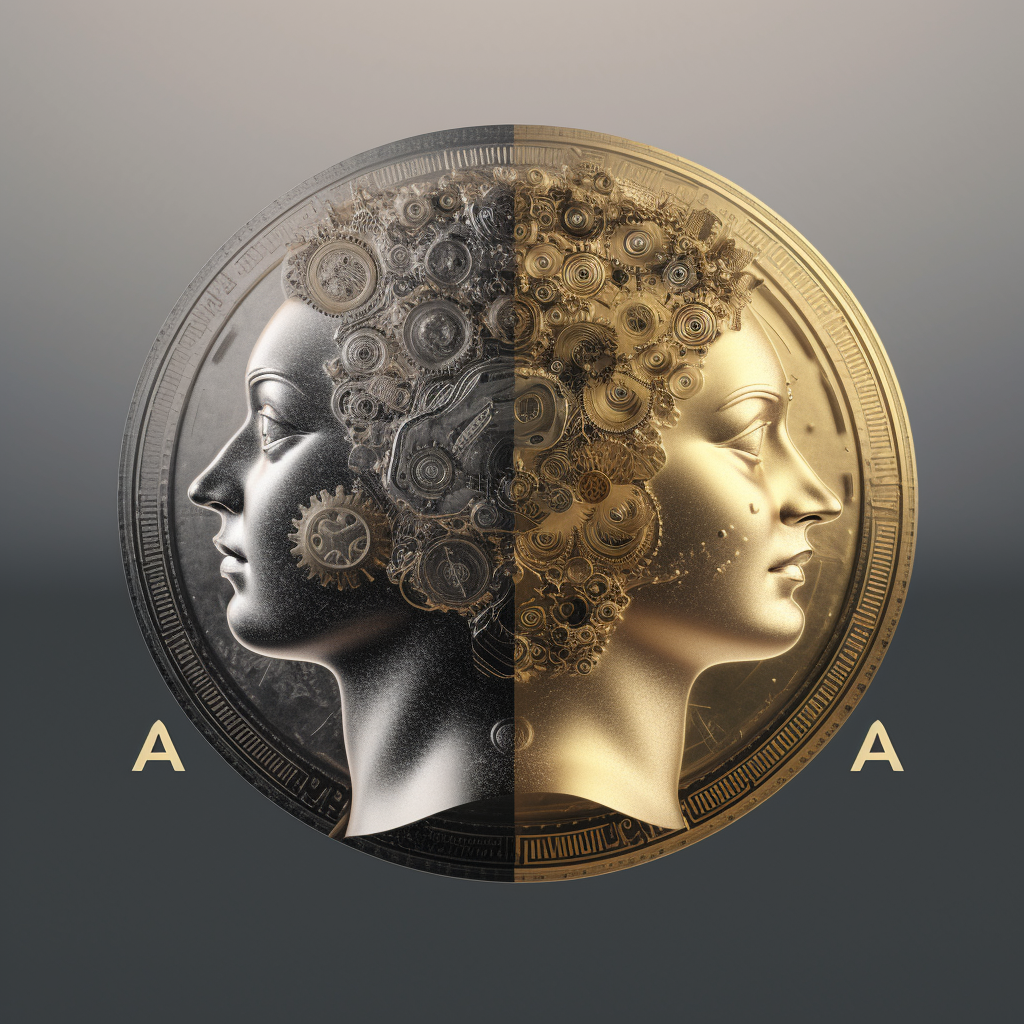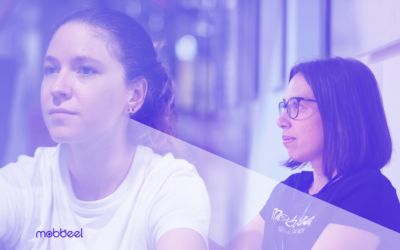*Copyright-free image: designed with an artificial intelligence (Midjourney)
The following article, written by Rafael Campillo Lorenzo, CMO of Mobbeel, addresses the use and evolution of Artificial Intelligence in our current world. This article was originally published in Byte TI magazine, highlighting the revolutionary impact of AI in various areas of our lives. From the workplace to the way we interact and even conduct business, AI-based technologies like ChatGPT, Dall-E, and Midjourney are driving significant qualitative change.
There is little more to add about the use and evolution of Artificial Intelligence that hasn’t been said in recent months. Just by opening social media platforms like LinkedIn or browsing through any tech news portal, one can see that it’s the talk of the town: the tremendous qualitative leap that tools and solutions of all kinds are experiencing thanks to the emergence of AI-based technologies like ChatGPT, Dall-E, and Midjourney.
Never before has there been a revolution like the one we are witnessing following the advent of the internet in the mid-80s and the first search engines in the early 90s.
Web 2.0 in the dot-com era (2004) attempted to turn everything upside down by enabling interaction and collaboration among users through social networks, but soon we saw the other side of the coin: a centralized web where large companies control the infrastructure and applications, offering “free” services in exchange for personal data.
Users lived in an illusion that made us believe we were powerful, but where we lost all control and let algorithms guide us in a specific direction.
Even the hype that has been experienced in the last two years with the emergence of Web3 and the explosion of a decentralized ecosystem based on Blockchain, where NFTs, cryptocurrencies, DAOs, and the Metaverse were supposed to change the way people interact, hasn’t brought about such a revolution.
But while the Metaverse today seems more like smoke than reality, the emergence of AI presents an unparalleled advancement that will shake our digital universe and transform multiple facets of our daily lives. It will affect the functions performed in our jobs, their operational efficiency and productivity, and even the way we relate to each other and do business.
However, as Peter Parker said, “with great power comes great responsibility,” and artificial intelligence, like any powerful tool, also has its dark side: the misuse of technology to commit various types of crimes.
In fact, a letter has recently been signed by researchers from different parts of the world and influential figures like Elon Musk, calling for a halt to the development of advanced artificial intelligence for at least six months, due to the supposed risks these advancements may pose to humanity.
![]() The AI can also be used to carry out identity impersonations throught deepfakes.
The AI can also be used to carry out identity impersonations throught deepfakes.
Cybercriminals can employ artificial intelligence algorithms to carry out various types of fraud by impersonating individuals in digital environments.
For instance, someone could utilize ChatGPT to generate false content that aims to imitate the identity of other individuals, which could have negative consequences for the reputation of the impersonated individuals and consumer trust.
AI can also be utilized to conduct identity impersonations through deepfakes, which are digital manipulations of images, videos, or audios using deep learning algorithms to alter the appearance and voice of a person.
The villains are becoming increasingly powerful.
Fortunately, companies can rely on specialists who can help them successfully confront these challenges. Utilizing the same “superpower” as fraudsters, based on deep learning technologies and neural networks, Mobbeel, an SIA company with over 13 years of experience in digital identity, can assist organizations across various sectors in combating fraud.
Their first “superpower” is biometrics, which encompasses techniques that allow for the unique identification of an individual based on their physical traits (facial or voice recognition) or behavioral patterns (biometric signature). Furthermore, the combined use of multiple biometrics (multifactor authentication) or as a second authentication factor strengthens the security of any process.
Other “powers” stem from AI and aid in avoiding deepfakes. On one hand, Mobbeel employs liveness detection techniques that can detect attacks through screens, photographs, or masks, where users are asked to perform random movements that hinder the generation and reproduction of deepfakes. On the other hand, deep learning techniques like Vision Transformers achieve success rates exceeding 80%.
In conclusion, artificial intelligence is not inherently good or bad; its nature depends on how it is utilized. That’s why Mobbeel, with proven anti-fraud technology, can assist companies in protecting themselves against these risks and ensuring the security and trust of their clients. AI can be a great ally for organizations in their fight against fraud and identity impersonation, as long as it is used responsibly and ethically. After all, any technology sufficiently advanced is indistinguishable from magic.
If you’re looking for systems to help prevent identity fraud caused by AIs, such as deepfakes, don’t hesitate to get in touch with us!

I’m a Software Engineer with a passion for Marketing, Communication, and helping companies expand internationally—areas I’m currently focused on as CMO at Mobbeel. I’m a mix of many things, some good, some not so much… perfectly imperfect.




